A Whole-Brain Education
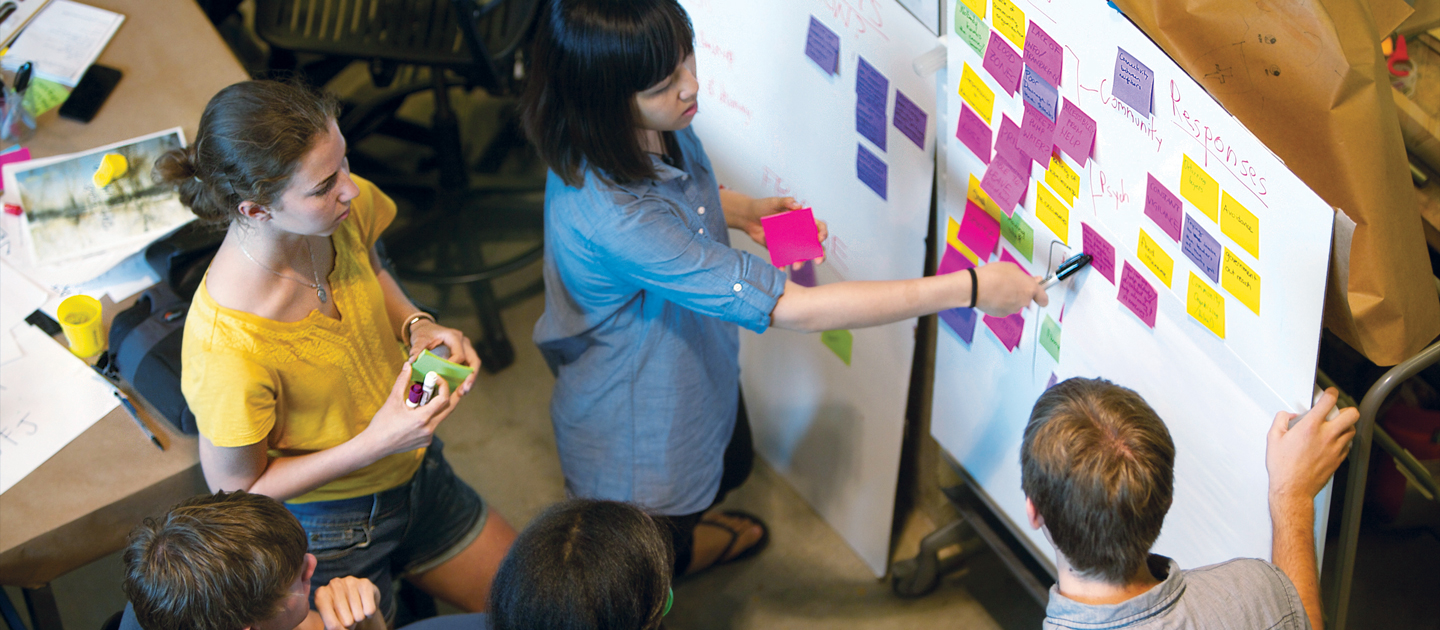
The classroom alone isn’t enough to create whole-brain thinkers. It’s why Dean Julio M. Ottino sought to transform the student experience by expanding the curriculum in design and entrepreneurship, supporting interactive courses that promote wellbeing and mental health, and championing new student groups borne out of the school’s growing leadership in areas like design and computer science.
“We appreciate the importance of encouraging students to follow their interests,” Ottino says. “By participating in numerous activities, they are exposed to different viewpoints and ideas, and ways to use their engineering skills.”
The effect of these changes has been notable. Northwestern Engineering’s undergraduate admittance rate dropped from nearly 45 percent in 2006 to just 7 percent in 2022, while yield—the number of students accepting an offer of admission—increased from less than 30 percent to more than 55 percent during that same period of time.
Demographics have also shifted: 36 percent of the school’s Class of 2026 are women, while nearly 27 percent are underrepresented minorities.
We spoke with students and alumni to learn how their experiences at Northwestern Engineering supported and guided their journey to become whole-brain engineers.
Segal Design Institute
Endowed by Gordon and Carole Segal in 2007, the Segal Design Institute significantly expanded Northwestern Engineering’s undergraduate design curriculum and supported design research.
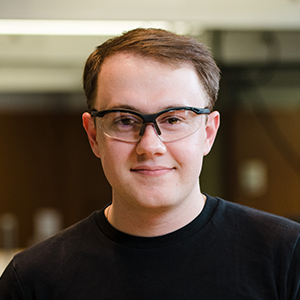
Shane Dolan
Mechanical Engineering (’22)
Principal Manager, Tesla
Like all first-year engineering students, I enrolled in the Design Thinking and Communication course sequence offered by the Segal Design Institute. DTC provided me with invaluable exposure to some of the most fundamental concepts in engineering. The distinguished faculty instructed us on the essential phases of the engineering design process, emphasizing the significance of communicating our ideas proficiently to stakeholders, teammates, classmates, and other invested parties. DTC fortified my understanding of the primary stages of observation, ideation, and validation, laying the groundwork for acquiring critical skills, such as conceptual sketching, efficient user testing, and iterative design.
DTC fortified my understanding of the primary stages of observation, ideation, and validation, laying the groundwork for acquiring critical skills, such as conceptual sketching, efficient user testing, and iterative design.
These skills proved foundational in my subsequent coursework at Northwestern. Through Segal courses, I communicated effectively with clients and users, which facilitated the development of usercentric solutions. My early exposure to the advanced manufacturing tools and equipment in the Segal prototyping shop was crucial in designing a prototype intelligent sprinkler device to help farmers more efficiently use water. These experiences taught me lessons I use today to address design problems and coordinate with team members at Tesla.
Computer Science
To meet the growing demand for computer science at Northwestern, the McCormick School of Engineering launched the CS+X initiative in 2016. With plans to hire 20 faculty—including 10 appointments structured as collaborative joint appointments with other disciplines such as education, journalism, and robotics—the initiative also led to significant reimagining and expansion of teaching efforts and the development of dedicated teams of teaching faculty and peer mentors.
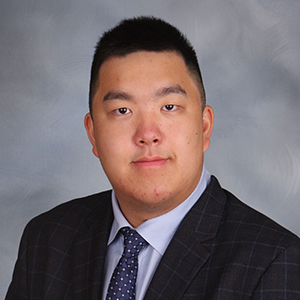
Peter Zhong
Incoming PhD Student, Computer Science
Carnegie Mellon University
A Northwestern computer science education is not just about teaching students how to code, write a database, or write a compiler. There is an institutional focus on treating CS as a discipline of engineering and applying an engineering mindset to it. Professors emphasize the importance of writing clean code and that development should be test-driven. I have carried this mindset with me to both my research and industry jobs.
The community fostered by the faculty is welcoming and impactful. As a first-year student, I was amazed by the wealth of research opportunities. Faculty were genuinely interested in mentoring students like me who had limited experience in CS research.
As someone who aspires to potentially become a college professor, I found it invaluable to get such experience so early in my academic career.
Similarly, there is a wealth of teaching opportunities—even for its undergraduates. The professors I peer-mentored for didn’t just ask me to manage office hours, they helped develop my teaching skills. I ran discussion sections, and professors gave me constructive feedback on how to best communicate course materials. As someone who aspires to potentially become a college professor, I found it invaluable to get such experience so early in my academic career.
Farley Center for Entrepreneurship and Innovation
Supported by a gift from the late James Farley (’50) and his late wife Nancy, the Farley Center was established in 2008 to foster entrepreneurship across the university. Today, Farley serves more than 1,000 students annually and offers more than 30 courses.
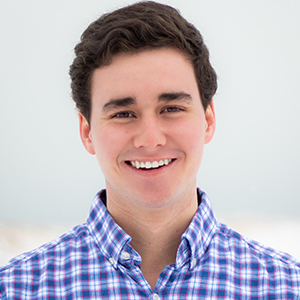
Kevin Kaspar
Manufacturing and Design Engineering (’24)
Studying entrepreneurship through the Farley Center has taught me how to think critically about how the product development cycles of hardware and software technologies occur alongside the business model and scalability of a startup. The center has been especially supportive in helping me launch InfernoGuard, a startup wildfire detection and notification platform. I created the pitch deck for my company in Farley’s Principles of Entrepreneurship course, which gave me unique insight into building the foundations of pitch decks. InfernoGuard has since won multiple collegiate startup competitions, including Northwestern’s 2022 VentureCat pitch competition.
Founders wear many hats, so these broad experiences have established a robust foundation to tackle challenges I might face inside or outside the classroom in the future.
Through the Farley Center, I have also gained experience in areas such as team building, managing coworkers, sales, marketing/branding, and many more. Founders wear many hats, so these broad experiences have established a robust foundation to tackle challenges I might face inside or outside the classroom in the future.
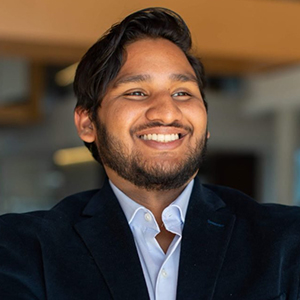
Ibraheem Alinur
Industrial Engineering, Entrepreneurship Minor (’20)
CEO and Cofounder, City Health Tech
Entrepreneurship has been at the foundation of bringing my ideas to life and helping others. The Farley Center gave me experience mixing the theoretical with the practical. Through courses such as Engineering Entrepreneurship, Leadership, Ethics, and You, and Startup Accounting and Finance, I failed and learned in a safe environment, which made me confident when facing similar challenges with higher stakes. As a serial founder with experience in research commercialization and venture capital, I’ve worked with hundreds of founders, funders, and scientists much sooner than if I had to learn entrepreneurship on my own.
The Farley Center enabled me to take my entrepreneurship skills to the next level by understanding problem-solving, economic needs, and the business skills and leadership required to implement solutions to create meaningful change in my community.
Engineering is one of the most powerful tools to solve complex problems in technology. The Farley Center enabled me to take my entrepreneurship skills to the next level by understanding problem-solving, economic needs, and the business skills and leadership required to implement solutions to create meaningful change in my community. By combining the unique tools and perspectives that entrepreneurship and engineering offer, I feel like I am five years ahead of where I would otherwise be in my career.
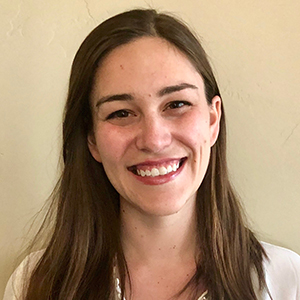
Sophia Wennstedt
MMM Program (’22)
CEO and Cofounder, Blip Energy
Studying entrepreneurship at the Farley Center opened new doors in my career trajectory, and led to my current role as a founder. One catalyst for me was the course NUvention: Energy, which responds to the demand for energy innovation by bringing together interdisciplinary student teams from across Northwestern schools to develop ventures in the sustainable energy and clean-technology. Throughout the course, I heard presentations from labs about their up-and-coming discoveries, met classmates who held a shared interest in energy storage, and investigated commercialization of novel technologies.
Studying entrepreneurship has also made me a better engineer. In any engineering discipline, you're working to find a solution within a set of constraints. Entrepreneurship broadens the scope of those constraints, focuses on the true problem for the user, and how to give them access to the solution.
Studying entrepreneurship has also made me a better engineer. In any engineering discipline, you're working to find a solution within a set of constraints. Entrepreneurship broadens the scope of those constraints, focuses on the true problem for the user, and how to give them access to the solution. This is the kind of problem solving I work through as Blip Energy’s CEO and Cofounder.
